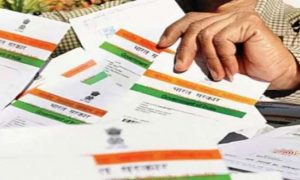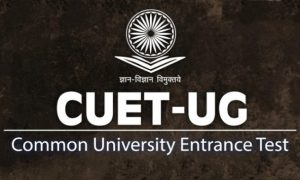New Delhi: The Uniform Civil Code or UCC will not interfere with religion or customs, said Law Commission chairperson Justice (retired) Ritu Raj Awasthi, in an exclusive interaction with Times Now. “We are very clear that we are not going to interfere with the customs and rituals of any religion,” the law panel chairman said.
Justice Awasthi further said that there are misconceptions that the Uniform Civil Code is going to be thrust upon people and assured that all concerns about the code will be addressed. The law panel chief further said that it has received 80 lakh responses from people, political parties and religious organisations on the UCC the panel has even engaged an agency to aid the process of deciding on the feasibility of the code.
Read More: Govt issues high risk warning for Google Chrome users, says update or lose control of your PC
“It is not easy to analyse these responses so fast, so we have engaged an agency to analyse it and give the report. That work is going on. We had to hire an agency due to the overwhelming response. We have consulted scholars and eminent persons on subjects of personal law of various religions. We have consulted experts outside the country like Great Britain, USA, Australia. We have consulted sitting judges and retired judges. There comments are coming. This is how we are planning to go on,” the law panel chief said.
He further said that the law panel has invited various religious organisations like the Muslim Personal Law Board, Women Muslim Personal Law Board, the apex body of Christians, a delegation of Paris and Buddhists, who have all come and met the law panel and have given their perspective. The panel has also met several NGOs and tribal organisations, the panel chief said.
Read More: ISKCON Sends Rs 100 Crore Defamation Notice To BJP’s Maneka Gandhi Over ‘Biggest Cheat’ Remark
Talking about the misconceptions surrounding UCC, the law panel chief said, “Now we will go out and spread to people in states the basic concept (that) we want to adopt in UCC. We want to give clarifications in this regard. What we find is there are a lot of misconceptions in the minds of people because of some wrong discussions on media platforms. These misconceptions need to be treated and rectified in the minds of people.”
For the law panel chief, the greatest misconception is that the UCC will be thrust upon people, that it will interfere with their customs.
“We will give our view. The basic concept we want to adopt in the UCC. There are some wrong debates on media platforms on a wrong understanding of UCC. These misconceptions are creating a lot of confusion in the minds of people that UCC is going to be thrust upon them, that it will interfere with their customs, rituals, marriages, ceremonies as per their established customs. This is all wrong,” the Law Commission chief reiterated.
Read More: Six days, 8 rallies: PM Modi’s busy schedule in 4 poll-bound states from today
The Law Commission seeks to go to people, hold conferences to clear these misconceptions, he said.
The Uniform Civil Code seeks to come up with a codification of laws that will apply to all citizens regardless of religion, gender, caste etc. The UCC will be a standardised set of laws that will govern personal matters including marriage, divorce, inheritance, succession and adoption.
As of now, personal laws are governed by religious practices of various communities.
The Uniform Civil Code has been in the making since India’s Independence from British Rule in 1947. Repeated attempts to come up with a code on the basis of consensus have failed. The Supreme Court has repeatedly directed governments to implement the Uniform Civil Code.
Article 44 of the Indian Constitution, under the Directive Principles of State Policy, states that: “The State shall endeavour to secure for the citizens a uniform civil code throughout the territory of India.”
The possibility of a Uniform Civil Code has often triggered concerns within religious minorities and tribal groups who feel that their religious practices and customs may get subsumed within a larger code.
However, the UCC is also viewed as a way of ensuring that same laws apply to all Indian citizens. Prime Minister Narendra Modi, in June this year, had said, “If a house has one law for one member and another law for another member, can the house run? How will the country run with a dual system. We should remember that the Constitution of India also talks about equal rights of citizens.”





































